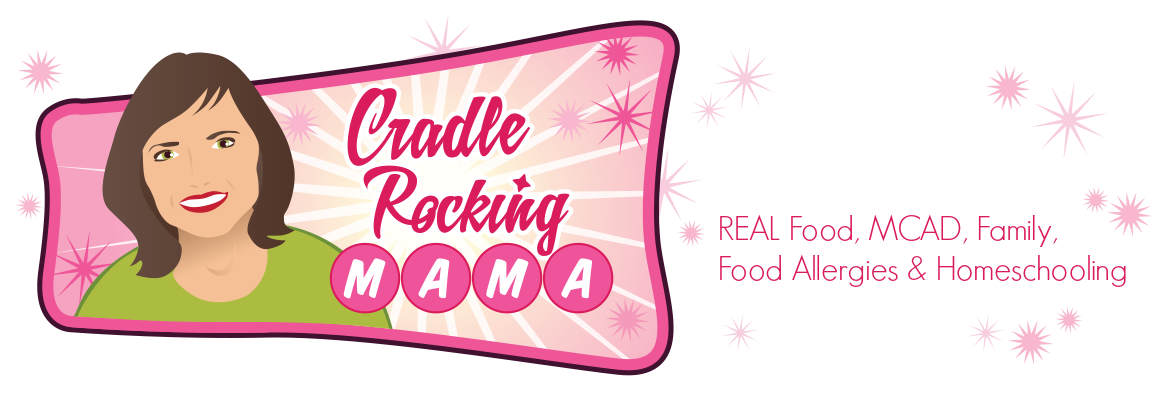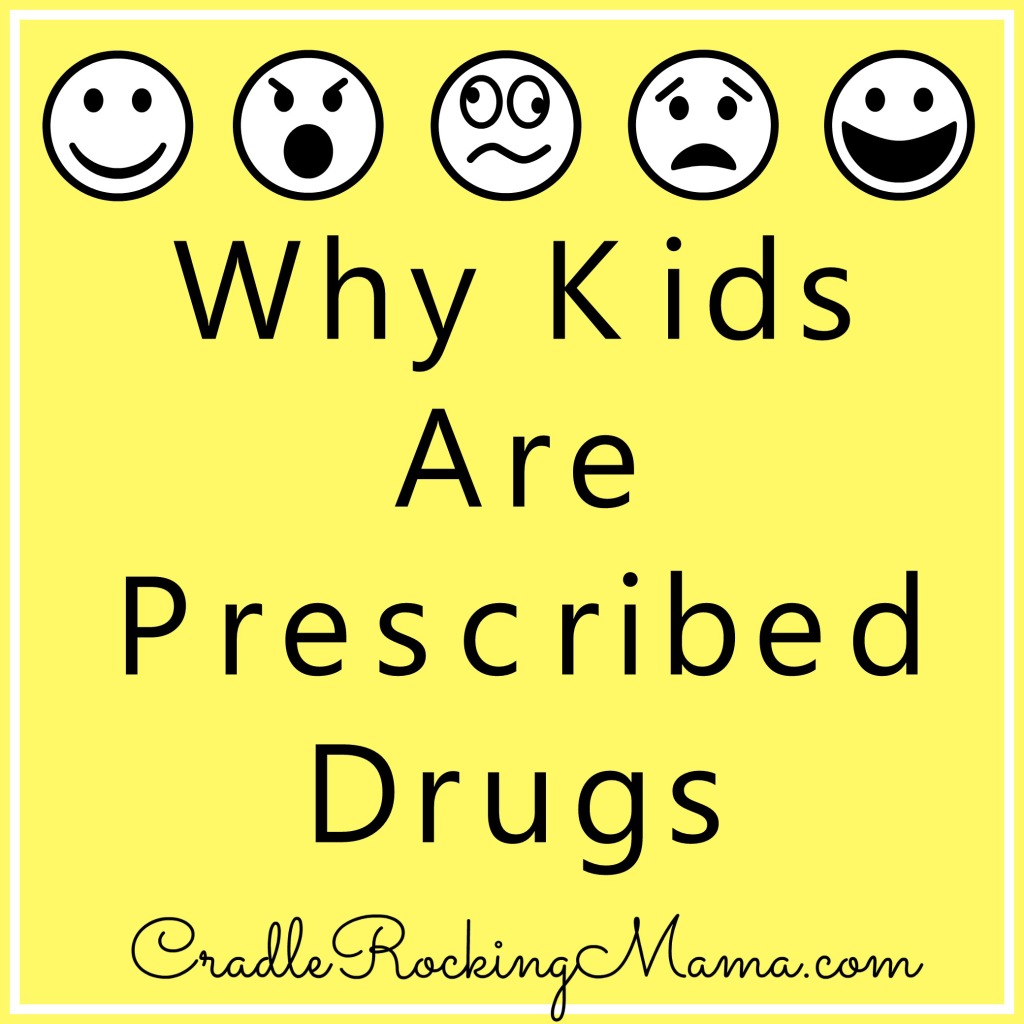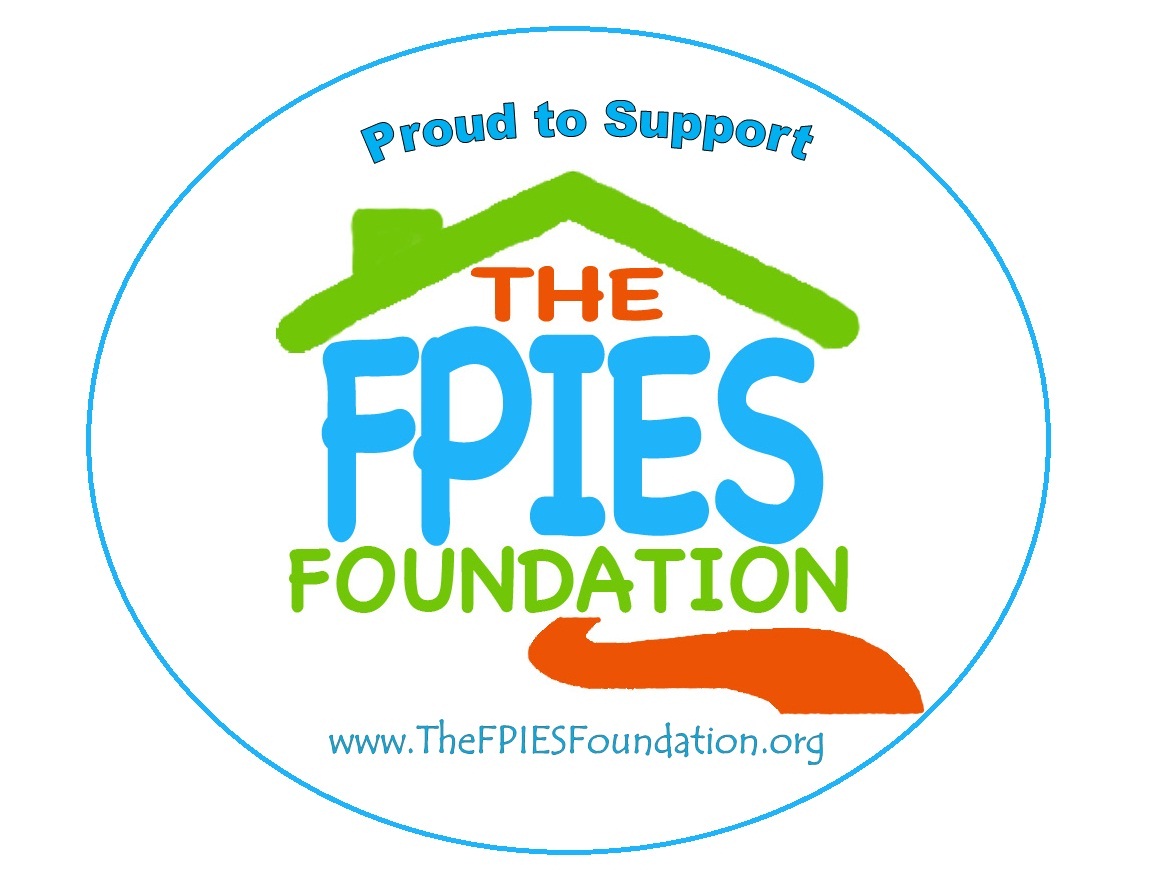My son Jed is four and a half years old. He’s bright, funny, charming, sweet, helpful, brave, and all around a very cool kid.
He also has Fructose Malabsorption and Salicylate Sensitivity (among other food issues).
Two Saturdays ago I made all sorts of yummy treats for him to take to a Halloween party. When I made them, I suspected he might have at least a mild reaction to some of the ingredients.
He’s already had a reaction that had me questioning cocoa powder and/or maple syrup. We aren’t sure which of the two the likely culprit is, or if it might, in fact, be both of them. I hoped to suss out the truth based on any reactions he may show to the fruit jellies, chocolate covered pecans, and cupcakes I made him.
Besides, we feed him well every day and this was a special occasion. When you have so many food issues, it’s really hard to find anything completely safe that counts as a “treat”.
So I went ahead, even with my suspicions.
One thing I forgot was that I would be leaving for work the next day. So Jed would be in the loving care of my parents.
Oops.
I really didn’t intend to send them the Tasmanian Devil! I just didn’t think it through all the way.
The whole time Jed was with Grandma and PopPop, he was horrible.
He was belligerent, angry, prone to hysterical crying, argumentative, uncooperative, and aggressive to the point of almost being violent.
My parents were so tired of fighting with him that they didn’t even think about the consequences of feeding him the oranges he pitched a fit to eat. But Fruit=Fructose; those oranges only compounded the behavior problems brought on by his food.
When I got home, I picked up the kids. The next two days the kids and I were home alone, and I was pushed to the limits of my endurance, patience, and tolerance.
Of course I was careful to not feed him ANYTHING remotely suspicious for either salicylates or fructose, so he was “coming down” from his reaction over those two days.
During that time it seemed like I had two personalities to deal with.
Typical, normal Jed was sweet, kind, loving, thoughtful, attentive, respectful, and reasonable. Five minutes later, with no (or almost no) provocation, wretched child showed up.
Wretched child would suddenly scream at me or his brother, hit us, snatch toys, lay on the floor while kicking and crying, refuse to do ANYTHING I asked of him (even things like “Jed, would you like some cereal?” brought about angry, put-upon shouts and anger), and generally behave like a child possessed.
Ten minutes later, though, and Typical Jed was back, giving me hugs, saying he was sorry, hugging his brother and apologizing to him, racing to do the tiniest task I presented him with a smile, and all around being a sweetheart.
After two days of this, I commented to my husband, Darrel, that I now completely understood why so many children are prescribed behavioral drugs in this country.
If we didn’t know about his food issues and how they affect his behavior, I would be absolutely beside myself with worry.
I wouldn’t know why Jed swung on one massive mood swing after another.
I wouldn’t know why my sweet, amazing boy suddenly turns into the Incredible Hulk at a moment’s notice.
I would think I was a horrible mother.
Or worse, I would think there was something psychologically wrong with my son.
For a moment I imagined what we would do about Jed’s behavior if we didn’t understand that food causes him to behave this way, and I realized that, in our concern, we would almost certainly have put him on medication by this point.
The funny-interesting part of this is the fact that I am still so new to my own diagnoses that I didn’t recognize, at first, that this is EXACTLY what I went through as a teen.
I know firsthand exactly how this plays out for people unaware of food reactions because I WAS that child. Let me tell you how this happens:
There’s a child who is bright, funny, and generally likeable, but who has zero self-control, is prone to tantrums, highly aggressive, occasionally violent, and whose moods swing on a dime.
The parents adore their child and are worried about this behavior. Naturally, they go to their doctor with their concerns.
If the doctor is also unaware of food reactions, they suggest an evaluation by a child psychologist, which the concerned parents immediately arrange.
If the child psychologist is also unaware of food reactions, they recommend counseling sessions and an evaluation by a psychiatrist to determine which medications will most help the child, which the parents arrange.
This isn’t a fabrication. I lived this experience as a teenager, being prescribed drugs that I didn’t need for conditions I didn’t have; only learning now, in my late ’30’s, that I actually have food intolerances that cause major physiological reactions and greatly influence my emotions. (Read about my discoveries here and here.)
The concept that FOOD IS POWERFUL and can influence not just our bodies, but our minds, is so little known in mainstream America that it is incredibly unlikely that anyone would recommend keeping a food journal and evaluating the child’s diet to see if that could be the cause of the erratic behavior.
So, just as I experienced, these susceptible children would continue to be “drugged” by their food, while also being drugged by their doctors.
The behavior would likely improve in some ways, as the prescription drugs would mask some things. However, it wouldn’t turn around completely due to the fact that they would still be eating foods that “drug” them.
The parents would go round and round, trying different drug combos, forking out huge sums of money for counseling sessions that *might* cause their sweet child to assume there is something “wrong” with them, and they’d never really come up with a good answer.
The side effects from prescription drugs are myriad and real, and they’d certainly deal with some of those along the way. (Lithium toxicity was one of my many fun medication side effects.)
In short, without realizing that their child’s food affects them this strongly, they would be entering one of the circles of Hell.
And my heart aches for the children out there who are going through this. Amazing children. Bright. Filled with light and joy. Seriously sensitive to the foods they eat. Adored by their parents.
But not lucky enough to encounter someone to encourage those parents to Look At The Food first.
I know there are some children out there for whom the traditional process of psychotherapy and psychiatric drugs is absolutely necessary and extremely beneficial.
I’m just left questioning HOW many children in that world might – just might – benefit greatly from a serious evaluation of their diet.
How many of those children are sensitive to fructose, or salicylates, or amines, or gluten, or any number of completely natural parts of food that can send a susceptible child through the roof, and no one ever thinks to look at those options before prescribing them expensive, mind-altering drugs?
I don’t know the answer to that. I suspect it is a higher number than anyone would like to contemplate.
And that just makes me very sad for those children and their parents.
For our part, we now know that Jed can’t tolerate cocoa (likely a salicylate issue) or as large a quantity of fruit as I provided in the jelly candies (fructose issue – small quantities are tolerable). And straight oranges are probably okay if he limits to one per day, but certainly no more than that.
So we’ll put that data in our ever-increasing notebook of “how to feed Jed properly” and move on.
We’ll keep learning. The length of time that passes where we have Typical, Amazing, Wonderful Jed to enjoy and love will get longer with each new nugget of data.
And when he does react, I won’t question whether I’m a good Mother. I won’t question whether there is something “wrong” with my child.
Obviously, atrocious behavior will be corrected, but I’ll KNOW that he isn’t being willfully horrible…he was just inadvertently drugged by his food. It isn’t Jed; it’s Jed on “drugs”.
I remember what that feels like; It’s a terrible feeling, to be that “out of control kid”.
Just knowing this about my son means the compassion and patience I have (and will continue to have) during a reaction is expanded exponentially.
I can only hope for the same gift for other Mama’s in similar shoes.
If you know someone with a child experiencing behavior problems and the parents are at a loss for an explanation, would you please send them this post, or at least encourage them to investigate the childs diet? They may still need psychiatric assistance, but it’s worth visiting a GI and nutritionist before – or in conjunction with – the psychiatrists. I hate the thought of children having to live through what I lived through during those confusing, dark years of my youth. Thank you!












Awesome Post Carrie as always!! You couldn’t have said it better.
Something to think about!
My dax reacts through behavior and tummy pain to gluten. I hate that it took me almost 2 years to figure that one out but he like a different kid now that we are gluten free.
It’s amazing how big a transformation there is when the wrong foods are eliminated, isn’t it? So glad you figured it out! 🙂
Pingback: What We Learned From Our Date Night - Cradle Rocking Mama
Pingback: Christmas Stories - Cradle Rocking Mama